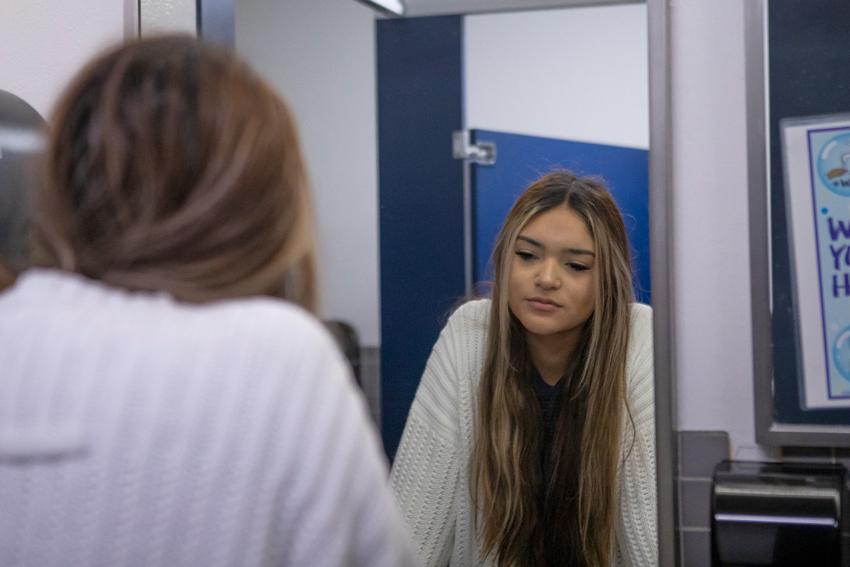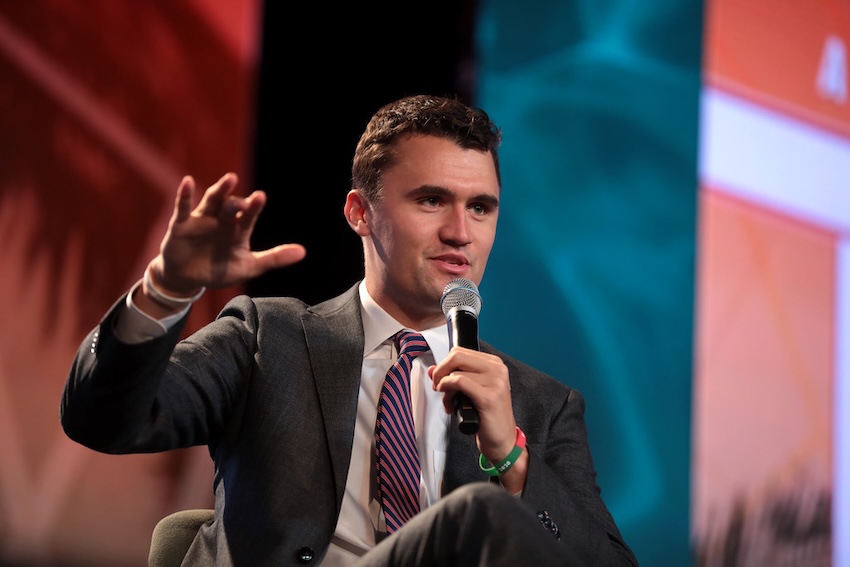Student share personal experiences with BDD
In recent years, the mental health term body dysmorphia has been thrown around in the media. Yes, insecurities are an issue that everyone deals with in one way or another, but going to the extent of using a serious condition to relate to is becoming extreme.
Body dysmorphic disorder is a relatively common mental health condition in which a person experiences excessive anxiety about a perceived defect in their physical appearance.
BDD shares a few features with eating disorders, such as obsessive-compulsive disorder, in the sense that they both involve a concern with body image. However, someone with an eating disorder worries about their weight and the shape of the entire body, while one with BDD is concerned about a specific body part.

This condition doesn’t always start with an eating disorder. Those with BDD may also suffer from depression, anxiety, obsessive-compulsive disorder and/or have experienced trauma as well. Those with eating disorders are certainly at risk for this condition, but not all patients with them will experience BDD.
Fresno Christian student, Serenity Cortez ‘24, shares her background of eating disorders.
“I’ve been playing sports since the age of 2, so my eating habits have revolved around that. I always ask myself how much I’ll burn later in order to determine what I can ‘allow’ myself to eat in the moment,” Cortez said. “The insecurity of my build and physical capability started to consume me this past year, and led to a season of no eating and the overexertion of my body.”
Cortez goes into further detail of her day-to-day engagement of her eating disorders.
“As I started to skip meals, or go full days to weeks without eating, my mental health as well as my physical strength weakened. I had little to no energy for simple tasks, and my physical build got a lot smaller,” Cortez said. “I would be out of breath by simply walking up the stairwell, and become light-headed to the point where now when I get up and get dizzy.”
The flaws that individuals with BBD see are usually minor and unnoticeable, or even imagined. However, they may spend hours upon hours focusing on these flaws, attempting to “fix” themselves with excess physical activity, skipping meals, etc.
[media-credit id=”178″ align=”alignright” width=”513″] [/media-credit]
[/media-credit]
Dietitians, psychologists and researchers are continuing to explore the changes in signals and messaging systems of the brain. Genetics and personality types are typically linked to the cause. There can also be a traumatic event that triggers the start of the disorder such as a divorce in the family, death, or broken relationships with friends or a significant other.
Sunny Yingling is a registered dietitian and the Director of Nutrition with Plan Health & Fitness in Fresno, as well as a Board Certified Specialist in Sports Dietetics with the Commission on Dietetic Registration. Her book “Recover: Finding Freedom With Food Again,” published on March 10, 2020, was written regarding the demographic of people struggling with eating disorders.
The novel informs the reader on how to recover from eating foods they would normally avoid out of fear as a result of inaccurate nutrition information. Yingling provided outpatient nutrition counseling since becoming a dietitian. She specializes in eating disorders, sports nutrition, and weight management at Zimmerman Therapy Group.
“Therapy is an imperative part of recovery for someone with BDD and it may involve medication, such as antidepressant,” Yingling said. “Depending on how the BDD developed and what co-occurring disorder or health condition they have, if one suffers from an eating disorder, then a dietitian will be involved in how to eat and move to take care of their body.”
Due to body dysmorphia, the perception of your body and reality are two different things. Your brain interprets what you see in the mirror much differently than what is definite, fixating on any flaw or perceived imperfection of your body. The thoughts become obsessive and interrupt daily life.
An example is of a student constantly going into the bathroom between every period to check their stomach in the mirror. Or a student using an overwhelming amount of clothing to hide their body from their peers, or wearing risqué clothing to compensate for their lack of self confidence.
Ciara Obeso, ‘24, a FCS student and athlete, shares how her battle with BDD and the struggle to find self confidence affects her on a daily basis.
“One day I’ll wake up and look at my body and think ‘wow I’ve finally done it… I’m losing weight.’ Other days I look at my body and get sick to my stomach. I ask myself ‘Should I eat more? Should I cut off some meals?’” Obeso said, “I seem to always find ways to downgrade my body by saying things such as, ‘why can’t mine look like hers?’”
Obeso explains the effects of her dysmorphia.
“When I began to cut off meals I never viewed myself as any better, I felt worse because of what I was doing. Since then I’ve been trying to eat better, but some days are more difficult than others,” Obeso said. “Eating but never wanting to, feeling sick to my stomach to the point I want to throw it up… I’ll forever hate myself for it all.”
Building self confidence starts at an early age. From Yingling’s dietitian perspective, parents need to avoid negatively talking about body size, weight and dieting. As a society we hold our looks and body shape/size on an unattainable pedestal. Social media has elevated comparison pressures and yet not addressed at formative ages by most.
We need to help teens and children alike understand that their value does not come from their physical appearance. Parents can encourage teenagers to engage in activities they enjoy and feel good doing while educating food and nutrition as a way for self-care, nourishment and enjoyment.
To read more from the Feather go to Feather earns Digital Silver Crown from CSPA or Rick Steves promotes travel in a post pandemic world.








Taylor • May 9, 2022 at 6:59 pm
What an amazing article. Well done Scarlett. Thank you Serenity and Ciara for sharing your story.
Bella Johns • May 9, 2022 at 4:59 pm
Good job Scarlett! Thank you Serenity and Ciara for your bravery to share part of your story! And shoutout to Maiya, you are a model! I’m so proud of all of you!
Emma Calderon • May 5, 2022 at 11:01 pm
Exceptional article Scarlett!